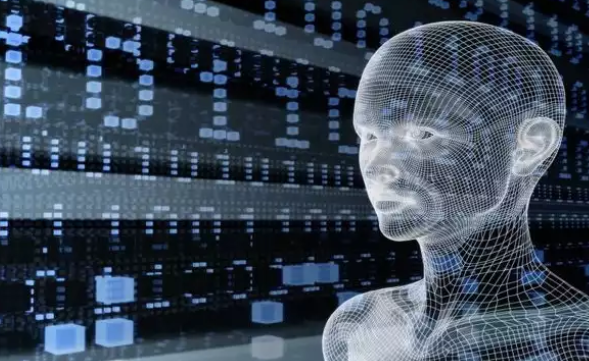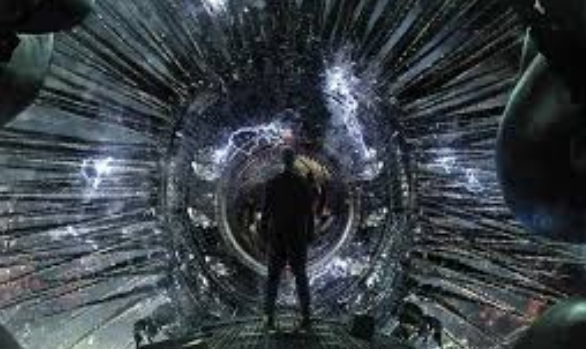“The main difference between AI and human intelligence is the way problems are solved” See more: http://evangelicalfocus.com/science/2534/The_biggest_difference_between_AI_and_human_intelligence_is_the_way_machines_solve_problems

Scientists believe that few would dispute that Artificial Intelligence (AI) systems will solve problems which unaided humans could only solve by using their intelligence. But the human mind has a number of intrinsic characteristics, such as subjectivity, intentionality, teleology, and rationality, which a computer can only simulate. Angus Menuge is professor and chair of philosophy at Concordia University Wisconsin and President of the Evangelical Philosophical Society. Angus Menuge, President of the Evangelical Philosophical Society. He earned his BA in philosophy from the University of Warwick, England, his Ph.D. in philosophy from the University of Wisconsin-Madison, and a Diploma in Christian Apologetics from the International Academy of Apologetics, Evangelism, and Human Rights, Strasbourg. Menuge is currently working on books in a number of areas: the powers of rational beings; dualism and its critics; and the nature, scope, and limits of religious liberty. In an interview with the European Leadership Forum, Menuge explains what AI is, its limits and the enduring differences between artificial and human intelligence. KNOWLEDGE REPRESENTATION Angus Menuge defines Artificial intelligence (AI) as “the attempt to use computers, hardware and software to develop the ability to solve problems which usually require human beings intelligence to solve.” That is why “the first work that was done in artificial intelligence, was solving problems in logics and mathematics.” “But it was quickly realised that many of the things that human beings do require contextual knowledge, so the paradigm shifted to what is called knowledge representation”, Menuge explains. That tries to “represent knowledge of the world around you, how you negotiate something as simple as a trip.” EXPERT SYSTEMS “Eventually, it was realized that the best way to model human intelligence was to develop what is now called expert systems, which are developed by interviewing real human experts in any area”, Menuge says. Those interviews aim to “find out the role of the knowledge that can be represented in a database, and also the rules that are used to process that knowledge.” “That is conventional artificial intelligence, it solves one particular problem in a particular area, like Deep Blue, which successfully defeated the chess master Gary Kasparov, but chess is all it does”, the President of the Evangelical Philosophical Society points out. ARTIFICIAL GENERAL INTELLIGENCE More recently, “the quest is being for what is called artificial general intelligence.” “Human beings can learn new things, new techniques, they can master things that they did not know about before, so the attempt is to come up with general strategies that will capture this flexibility of human beings”, Menuge explains. There are some individuals who “claim that sometime this century, we will have artificial systems that will have the same kind of general intelligence that humans have”, he adds. “Nick Bostrom at Oxford University even says they may have what he calls super intelligence, which will be more intelligent than us.” DOES AI POSSESS INTELLIGENCE? Menuge says that “the philosopher John Searle makes a distinction between weak AI and strong AI. The first one has the ability to simulate human intelligence, but they only capture performances, and the question is: how do they do it?, do they, in fact do it in an intelligent way, or do they just produce intelligent behaviour?” “Even if the system produces intelligent behaviour, that is not enough to show that the intelligence really originates within that system rather than some other source, like the programmers and designers of the system”, he states.
HUMAN AND ARTIFICIAL INTELLIGENGE

According to Menuge, “the biggest difference between AI and human intelligence is the way machines solve problems” “Machines solve problems by pattern recognition and pattern processing, theyare very good at detecting the same input pattern and figuring out how to process that into a different output pattern.” But “long ago the philosopher John Searle pointed out that this is not really sufficient for what we normally think of as an intelligence, which involves understanding”, Menuge points out. UNDERSTANDING AND SUBJECTIVITY

“Searle argues that the real difference is that with human intelligence you have subjects that can actually understand what the symbols mean, but the computer creates the illusion that it understands, because we put in it an input that mean something to us.” Then, “the computer, through a clever algorithm, will produce a diagram, or a chart, which, again, means something to us, but none of it means anything to the computer, it has been simply designed to transform one pattern to another”, the professor says.

On the contrary, “human beings have subjectivity, that enables us to have a particular point of view on the world, each one of us sees things a little different, we can come to see that something.
This post recieved an upvote from minnowpond. If you would like to recieve upvotes from minnowponds team on all your posts, simply FOLLOW @minnowpond.